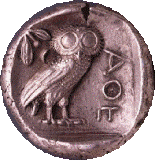When Women Rule
I thought I'd share this interesting piece by NY Times columnist Nicholas Kristof. I'd love to hear what people think--do the studies mentioned by Kristof show what is claimed they do? Could there be other explanations? Do people find evidence of such prejudices in their daily lives--do they find themselves, even, thinking and acting on this type of prejudice? If the studies' conclusions are right, could this explain, at least in part, for instance, some of Senator Hillary Clinton's losses in the Democratic primaries? How about the classroom? Do students tend to think less highly of their female professors than of their male ones? Do they tend do evaluate them less highly at the end of the term? If so, what could be done to remedy this situation?
NY Times, February 10, 2008
Op-Ed Columnist
When Women Rule
By NICHOLAS D. KRISTOF
While no woman has been president of the United States — yet — the world does have several thousand years’ worth of experience with female leaders. And I have to acknowledge it: Their historical record puts men’s to shame.
A notable share of the great leaders in history have been women: Queen Hatshepsut and Cleopatra of Egypt, Empress Wu Zetian of China, Isabella of Castile, Queen Elizabeth I of England, Catherine the Great of Russia, and Maria Theresa of Austria. Granted, I’m neglecting the likes of Bloody Mary, but it’s still true that those women who climbed to power in monarchies had an astonishingly high success rate.
Research by political psychologists points to possible explanations. Scholars find that women, compared with men, tend to excel in consensus-building and certain other skills useful in leadership. If so, why have female political leaders been so much less impressive in the democratic era? Margaret Thatcher was a transformative figure, but women have been mediocre prime ministers or presidents in countries like Sri Lanka, India, Bangladesh, Pakistan, the Philippines and Indonesia. Often, they haven’t even addressed the urgent needs of women in those countries.
I have a pet theory about what’s going on.
In monarchies, women who rose to the top dealt mostly with a narrow elite, so they could prove themselves and get on with governing. But in democracies in the television age, female leaders also have to navigate public prejudices — and these make democratic politics far more challenging for a woman than for a man.
In one common experiment, the “Goldberg paradigm,” people are asked to evaluate a particular article or speech, supposedly by a man. Others are asked to evaluate the identical presentation, but from a woman. Typically, in countries all over the world, the very same words are rated higher coming from a man.
In particular, one lesson from this research is that promoting their own successes is a helpful strategy for ambitious men. But experiments have demonstrated that when women highlight their accomplishments, that’s a turn-off. And women seem even more offended by self-promoting females than men are.
This creates a huge challenge for ambitious women in politics or business: If they’re self-effacing, people find them unimpressive, but if they talk up their accomplishments, they come across as pushy braggarts.
The broader conundrum is that for women, but not for men, there is a tradeoff in qualities associated with top leadership. A woman can be perceived as competent or as likable, but not both.
“It’s an uphill struggle, to be judged both a good woman and a good leader,” said Rosabeth Moss Kanter, a Harvard Business School professor who is an expert on women in leadership. Professor Kanter added that a pioneer in a man’s world, like Hillary Rodham Clinton, also faces scrutiny on many more dimensions than a man — witness the public debate about Mrs. Clinton’s allegedly “thick ankles,” or the headlines last year about cleavage.
Clothing and appearance generally matter more for women than for men, research shows. Surprisingly, several studies have found that it’s actually a disadvantage for a woman to be physically attractive when applying for a managerial job. Beautiful applicants received lower ratings, apparently because they were subconsciously pegged as stereotypically female and therefore unsuited for a job as a boss.
Female leaders face these impossible judgments all over the world. An M.I.T. economist, Esther Duflo, looked at India, which has required female leaders in one-third of village councils since the mid-1990s. Professor Duflo and her colleagues found that by objective standards, the women ran the villages better than men. For example, women constructed and maintained wells better, and took fewer bribes.
Yet ordinary villagers themselves judged the women as having done a worse job, and so most women were not re-elected. That seemed to result from simple prejudice. Professor Duflo asked villagers to listen to a speech, identical except that it was given by a man in some cases and by a woman in others. Villagers gave the speech much lower marks when it was given by a woman.
Such prejudices can be overridden after voters actually see female leaders in action. While the first ones received dismal evaluations, the second round of female leaders in the villages were rated the same as men. “Exposure reduces prejudice,” Professor Duflo suggested.
Women have often quipped that they have to be twice as good as men to get anywhere — but that, fortunately, is not difficult. In fact, it appears that it may be difficult after all. Modern democracies may empower deep prejudices and thus constrain female leaders in ways that ancient monarchies did not.
Copyright 2008 The New York Times Company


 Hello Good People,
Hello Good People,